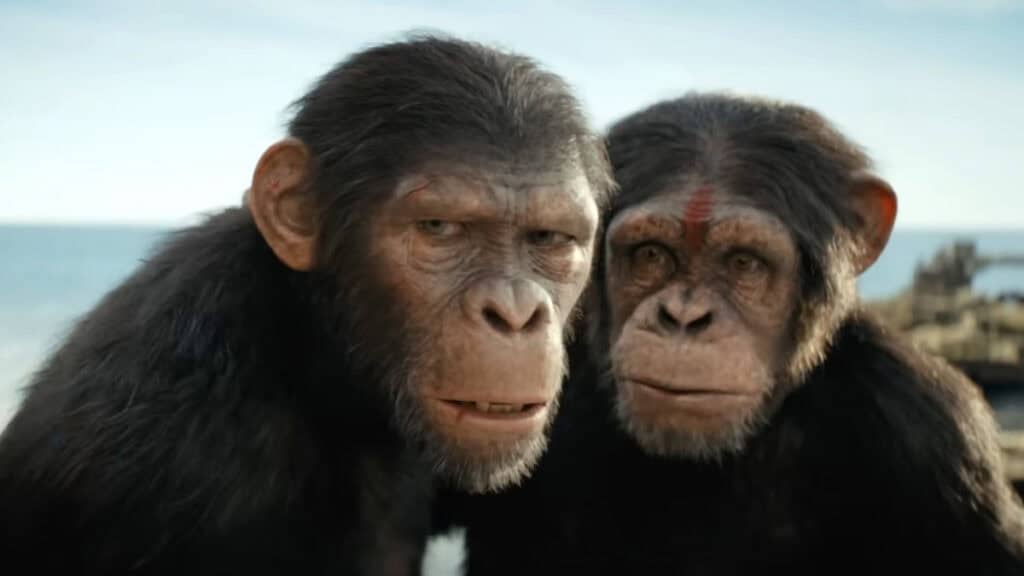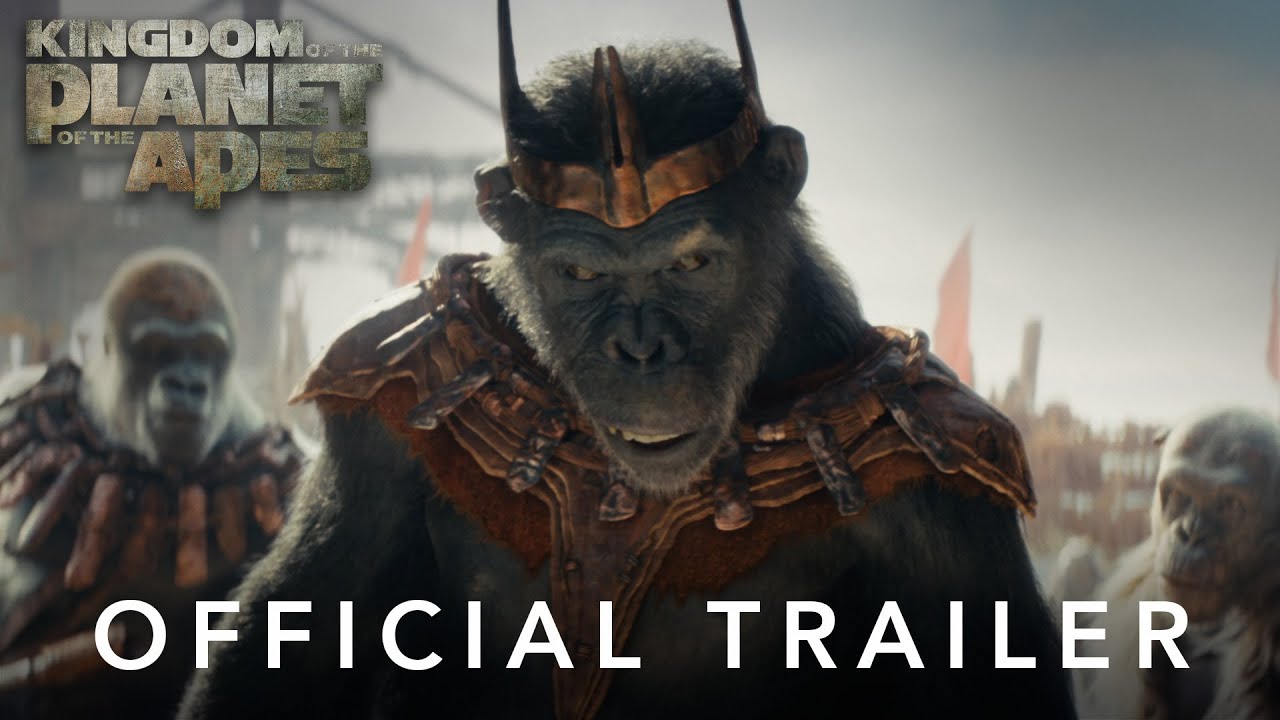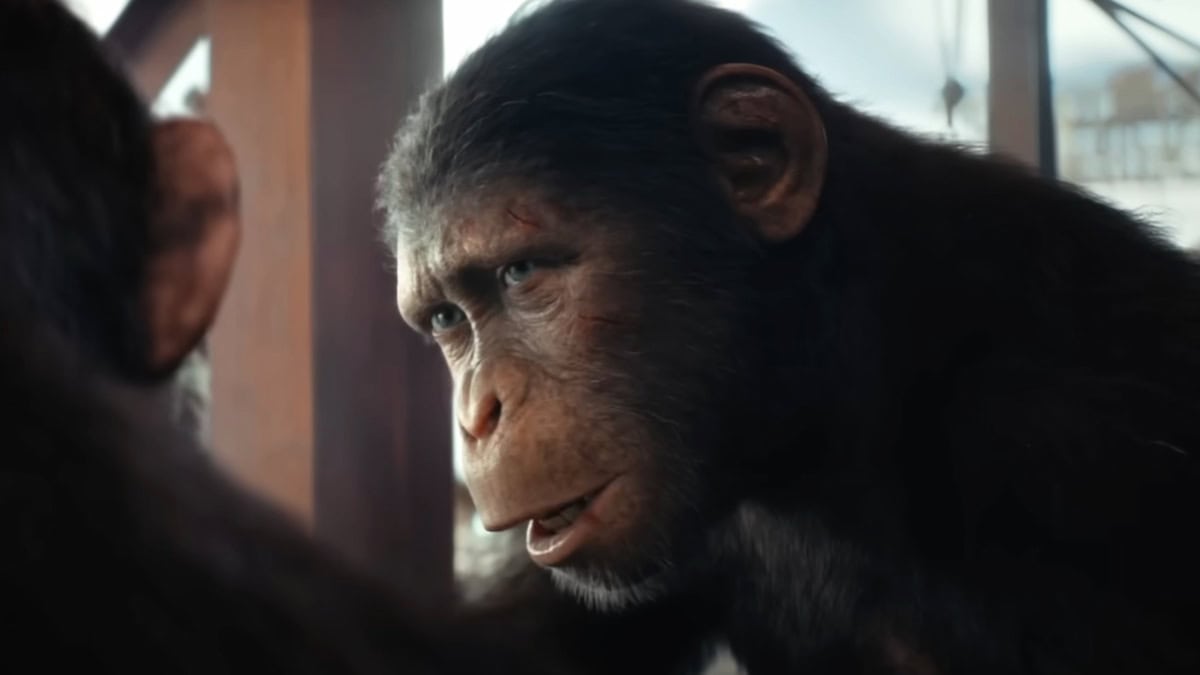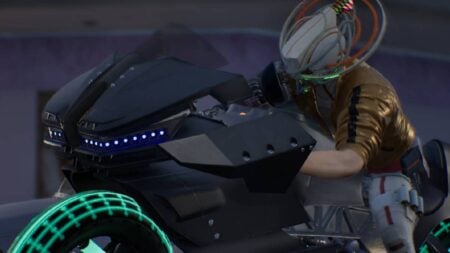Skip To...
After 10 Planet of the Apes movies, you’d expect a franchise to get a little stale. Thankfully, Kingdom of the Planet of the Apes is a great successor to the reboot trilogy and is hopefully, the start of a new one. Kingdom was directed by Wes Ball (The Maze Runner) and takes place several generations after War for the Planet of the Apes. It follows an ape named Noa – played by Owen Teague (Bloodline) – who embarks on a journey to find his clan after they are attacked by a violent faction led by the villainous Proximus Caesar, played by Kevin Durand (Abigail).
While on his way, he encounters a human named Mae, played by Freya Allen (The Witcher). After the virus from the reboot series spread, humans lost the ability to speak, but Mae seems smarter than the “wild” humans. He also meets Raka – played by Peter Macon (The Orville) – who follows the teachings of Caesar passed down through the generations. Kingdom’s story is one of revenge, one of discovery, and one of humanity. Through Noa’s journey, we become privy to just how far humanity has collapsed, and how warped Caesar’s vision for the apes has become.
Meet the Kingdom of the Planet of the Apes
Right from the beginning, Kingdom shows reverence toward the reboot trilogy, and the plot hinges on the existence of Caesar in those movies. You won’t necessarily need to have watched those movies to enjoy this one, because it does recap the story at the beginning. Kingdom is about legacy, culture, and religion. The main drive of Proximus Caesar is that he twists Caesar’s words including, “apes together strong” to force other apes to submit to his will. Proximus is the strongest character, which is a shame because he’s introduced late into the film.
Mae’s arc is the film’s most interesting plotline, but it’s way too vague at some points, and it would spoil Kingdom to go too much further into that. Noa is a good character but never quite reaches the highs of Caesar. Noa’s arc follows his attempts to be a son his father can be proud of, and while he has discernable traits, you’ll never root for him too much. You won’t really root for anyone in the movie because even the villain is making some solid points at times.
As for the performances, it’s hard to nail down the nuance of the motion capture for the apes. They all look phenomenal and it’s easy to lose yourself in what you’re watching. Teague plays Noa’s more emotional moments well, and he nails the sassier or less experienced reactions. Durand does a great job as Proximus, and it’s the best physicality of the film. Allen plays her role well too, not going too over-the-top, and instead realistically playing distrustful, afraid, and angry.
What Came Before
Lacking strong characters, Kingdom succeeds by banking on certain elements of the reboot movies, even with parallels at points. While these are callbacks, it’s tastefully done. The references aren’t easter eggs for you to point at, they emphasize Kingdom’s plot. When you first meet Noa, he’s climbing to get an eagle egg to bond with it, as is the tradition in their clan, and he desperately doesn’t want to disappoint his father. The themes of cohabitation and legacy are present from the beginning, ruminating about whether what Caesar went through was enough to find a balance between humans and apes.
Kingdom of the Planet of the Apes’ crowning achievement is how well it brings the planet of the apes to life. The setting of our civilization hundreds of years into a collapse adds a little mystery in the midst of a wondrous spectacle. You’re seeing skyscrapers, shipyards, and airports overrun by green, with nature taking over anything man-made. Noa’s home is built into radio towers, made to look like the Ewok’s homes on the moon of Endor in Return of the Jedi.
The score’s great too, as it accompanied that feeling of wonder that the movie is full of. In addition to John Paesano’s (Daredevil) music, Kingdom also features some of the music from the previous films that works well when calling back to Caesar, and in a more fan-service way. The music also drives home some of the more tense scenes, ones that have the tone of a horror or thriller. Kingdom gets tenser than expected, with some set-pieces leaving me energized. It also doesn’t shy away from levity and should make you laugh at least a few times.
The Long Journey
Coming in at 145 minutes, you’ll be glad that Kingdom of the Planet of the Apes is well-paced. The film moves, with the story speeding on and on through new locations. You never get used to a place for too long, but it might feel like a long movie because there’s so much packed into it. By the end, you shouldn’t find yourself bored. While it does tell a complete story, there are also a few loose ends that will lead to future (or maybe past) installments.
Kingdom succeeds in so many ways, while also cruising by with mediocrity in some others. It’s a beautiful movie with stunning environments and characters that will keep your eyes on the screen. The story is multi-layered, with more depth than you might expect. But, the characters aren’t interesting enough to sustain any curiosity regarding their fate, so much so that the next movie could be about other characters and I wouldn’t mind. However, Kingdom of the Planet of the Apes is still a great movie that fans of the series should run to the theater for. Newcomers should enjoy it too.
You can watch Kingdom of the Planet of the Apes in theaters from May 10, 2024.
Kingdom of the Planet of the Apes
Kingdom of the Planet of the Apes tells a gorgeous story about legacy that is marginally let down by mediocre characters.
Pros
- Stunning visual effects with both the apes and the environments.
- A multi-layered story that reflects on the franchise.
- The score captures the wonder of the beautiful visuals.
Cons
- Some characters are one-note and a little boring.










